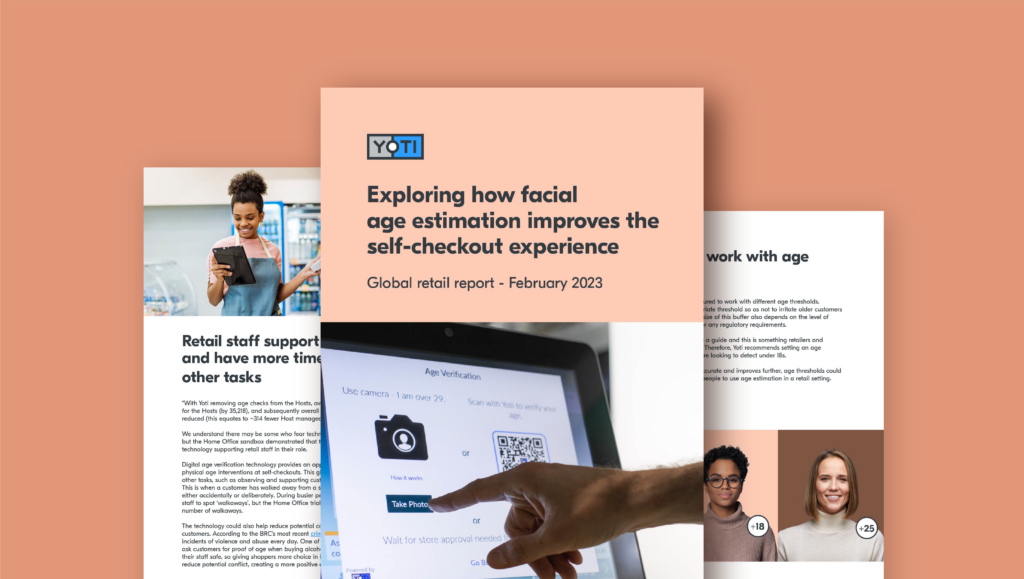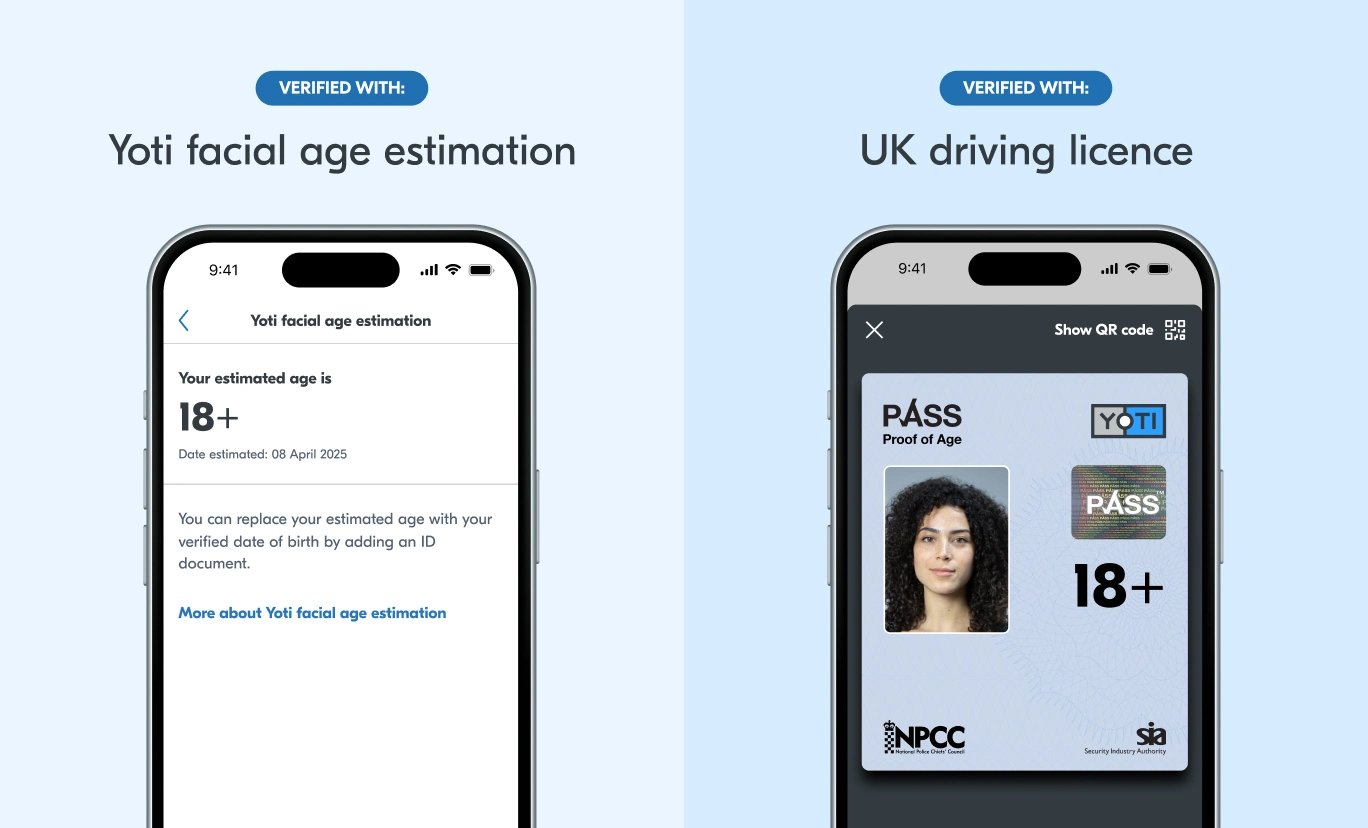
Nearly four years ago we integrated our facial age estimation technology into retail self-checkouts. Since then, it has been trialled by retailers in the US and Estonia, with further pilots taking place in Germany, Poland and Czech Republic. And last year UK supermarkets – including Asda, Morrisons, Tesco and Co-op – tested the technology as part of a Home Office regulatory sandbox. The aim of the sandbox was to trial digital age verification for the sale of alcohol under the UK Licensing Act (2003).
Detailed reports from the Home Office and the supermarkets who participated in the sandbox are due to be published. But in the interests of transparency, we have shared our own insights from both the Home Office trials and our wider learnings of how our technology works in a retail setting. We hope this helps to answer common questions and dispel misconceptions, and build trust and understanding in this new approach to age verification, which can make the lives of retail staff easier and improve compliance rates.
Key takeaways from the report:
- Customers like the experience
- Our technology gives customers a more private way to prove their age
- Digital age verification has the potential to improve retail staff safety and reduce friction between staff and customers
- Retail staff have more time to focus on other tasks, including spotting proxy sales and ‘walkaways’
- Our technology is inclusive for those who do not own or have access to an ID document
- Lighting conditions and environmental factors impact success rates
- Anti-spoofing is key to the success of digital age verification
A note from our CEO
“Our age verification technology can help make retail stores safer and give customers privacy-preserving ways to prove their age, without needing to show physical ID to staff. During the Home Office trials, I was particularly happy to see that some of the self-checkouts could successfully estimate over 90% of shoppers at the first attempt. This will be a game changer for retailers both here in the UK and abroad, who can use our technology to improve compliance rates and enhance the checkout experience for shoppers” – Robin Tombs, CEO of Yoti.



